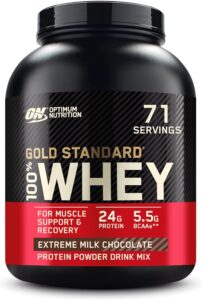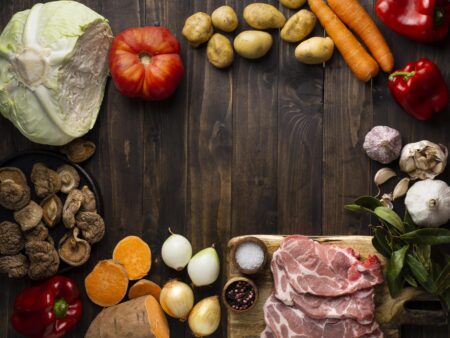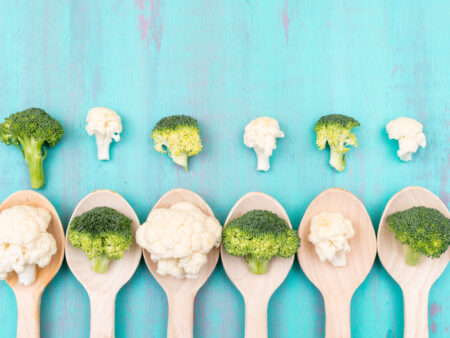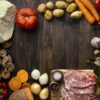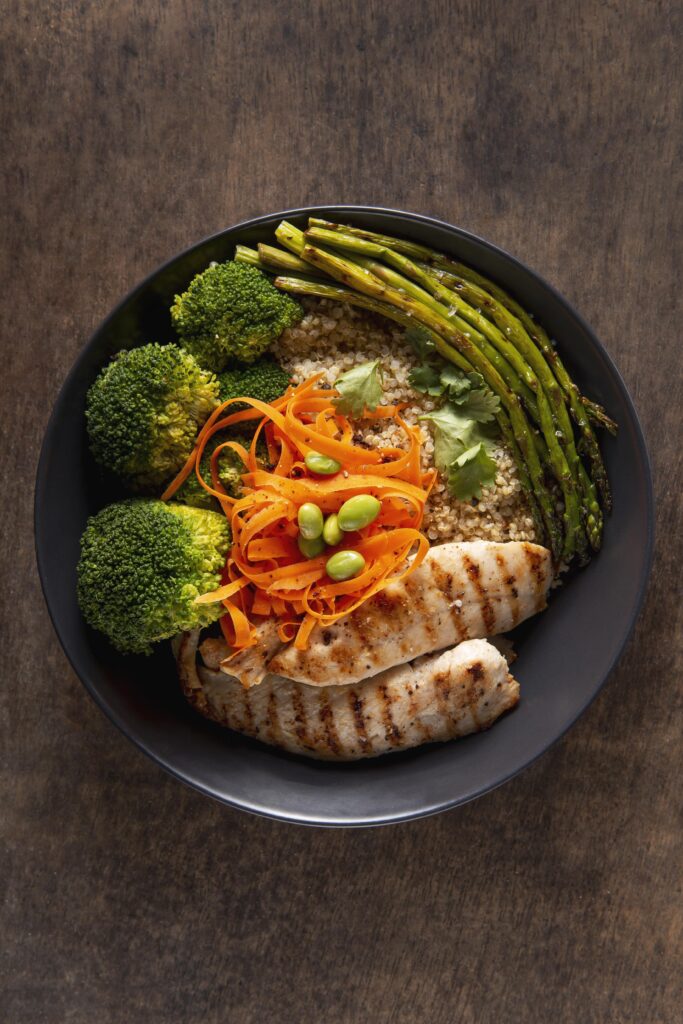
Introduction to 75 Hard
The 75 Hard Challenge is a transformative mental toughness program created by entrepreneur and author Andy Frisella. Unlike traditional fitness programs, 75 Hard focuses on building discipline, resilience, and mental fortitude. It is not merely a diet or exercise plan but a comprehensive lifestyle challenge designed to test and enhance one’s mental and physical limits over 75 days.
Participants must adhere to five critical daily tasks without deviation:
- Follow a diet.
- Complete two 45-minute workouts (one must be outdoors).
- Drink a gallon of water.
- Read ten pages of a non-fiction book.
- Take a progress picture.
Failure to complete any of these tasks means starting over from day one. This strict adherence is what makes 75 Hard exceptionally challenging and rewarding.
This article will delve into the dietary aspect of 75 Hard, providing detailed guidance, examples, and advice to help you succeed.
Understanding the Diet Component
The dietary component of 75 Hard is uniquely flexible yet stringent. Participants are free to choose any diet plan that suits their goals and lifestyle but must adhere to it with zero cheat meals and no alcohol for the entire 75 days. This requirement promotes discipline and consistency, key pillars of the program.
Choosing Your Diet Plan
The first step is selecting a diet plan. Your choice should align with your fitness goals, be they weight loss, muscle gain, or overall health improvement. Here are a few popular diet options:
- Keto Diet: A high-fat, low-carb diet that shifts the body into a state of ketosis, burning fat for fuel instead of carbohydrates.
- Paleo Diet: Focuses on whole, unprocessed foods similar to what our ancestors might have eaten.
- Mediterranean Diet: Emphasizes fruits, vegetables, whole grains, and healthy fats, particularly from olive oil and fish.
- Vegan or Vegetarian Diet: Eliminates meat (and possibly other animal products) in favor of plant-based foods.
- Macro Counting: Tracks macronutrients (proteins, fats, and carbs) to ensure balanced nutrition tailored to personal fitness goals.
Setting Clear Guidelines
Once you choose your diet, outline specific rules. For instance, if you choose the keto diet, define your daily carb limit. If you opt for the Mediterranean diet, specify portion sizes and food groups. Clarity in your rules prevents ambiguity and slip-ups.
Example Diet Plans
To provide a clearer picture, let’s explore sample daily menus for different diet plans suitable for 75 Hard.
Keto Diet
Breakfast:
- Scrambled eggs with spinach and feta cheese
- Avocado slices
- Black coffee
Lunch:
- Grilled chicken Caesar salad (without croutons)
- Olive oil and lemon dressing
Snack:
- Almonds and a piece of cheese
Dinner:
- Baked salmon with a side of broccoli and cauliflower rice
- Mixed greens with olive oil vinaigrette
Dessert:
- Keto-friendly cheesecake bite
- Mediterranean Diet
Breakfast:
- Greek yogurt with honey and mixed berries
- A handful of walnuts
- Herbal tea
Lunch:
- Quinoa salad with chickpeas, cucumber, tomatoes, and feta
- Olive oil and lemon dressing
Snack:
- Hummus with carrot and celery sticks
Dinner:
- Grilled lamb chops with roasted vegetables (zucchini, bell peppers, and onions)
- A side of mixed greens with olive oil vinaigrette
Dessert:
- Fresh fruit salad
Vegetarian Diet
Breakfast:
- Overnight oats with chia seeds, almond milk, and banana slices
- Green tea
Lunch:
- Lentil soup with a side of whole-grain bread
- Mixed greens with balsamic vinaigrette
Snack:
- Apple slices with almond butter
Dinner:
- Stuffed bell peppers with quinoa, black beans, and corn
- Side of steamed broccoli
Dessert:
- Dark chocolate square
Tips for Success
Meal Planning and Preparation
Planning and preparing meals in advance is crucial for adherence. Set aside time each week to create a meal plan, shop for ingredients, and prepare meals. Prepping ensures you always have compliant foods available, reducing the temptation to cheat.
Staying Hydrated
Drinking a gallon of water daily is part of 75 Hard. Staying hydrated aids digestion, helps control hunger, and supports overall health. Carry a water bottle with you and set reminders to drink regularly throughout the day.
Managing Social Situations
Social events can be challenging when following a strict diet. Plan ahead by researching restaurant menus, bringing your own compliant snacks, or eating before attending events. Communicate your commitment to 75 Hard to friends and family, seeking their support and understanding.
Tracking Progress
Keep a food journal to track your meals and adherence to the diet. This accountability tool helps identify patterns, triggers, and areas for improvement. Additionally, taking progress pictures daily provides visual motivation and tracks physical changes.
Common Pitfalls and How to Avoid Them
- Lack of Variety
Eating the same foods can lead to boredom and increased temptation to cheat. Incorporate a variety of foods, try new recipes, and experiment with different spices and herbs to keep meals exciting.
- Inadequate Nutrient Intake
Ensure your diet is balanced and provides all necessary nutrients. Consult with a nutritionist if needed to avoid deficiencies. Incorporate a wide range of fruits, vegetables, proteins, and healthy fats.
- Over-Restricting
While discipline is essential, overly restrictive diets can lead to burnout. Ensure your chosen diet is sustainable and enjoyable. Balance strict adherence with flexibility in food choices within your dietary guidelines.
Benefits of Adhering to the Diet
Sticking to your chosen diet for the full 75 days can yield significant benefits:
- Improved Physical Health: Consistent, nutritious eating supports weight management, muscle growth, and overall health.
- Enhanced Mental Toughness: Adhering to a strict diet builds discipline, resilience, and mental fortitude.
- Better Eating Habits: The challenge promotes long-term healthy eating habits and a better relationship with food.
- Visible Results: Daily progress pictures and consistent diet adherence lead to noticeable physical changes and increased self-confidence.
A Word of Caution
While the 75 Hard Challenge is transformative, it is not suitable for everyone. The extreme discipline required can be mentally and physically demanding. Consider the following warnings:
- Medical Conditions: If you have any medical conditions, consult with a healthcare professional before starting 75 Hard.
- Mental Health: The challenge can be stressful and may not be suitable for those with mental health concerns. Assess your mental readiness before committing.
- Overtraining: The requirement of two daily workouts can lead to overtraining and injury if not managed properly. Listen to your body and ensure adequate rest and recovery.
The 75 Hard Challenge is a rigorous program that can lead to profound personal growth and transformation. The dietary component, while flexible in choice, demands strict adherence and discipline. By choosing a suitable diet, planning meals, staying hydrated, managing social situations, and tracking progress, you can successfully navigate the dietary aspect of 75 Hard.
Remember, the ultimate goal of 75 Hard is not just physical transformation but the development of mental toughness and resilience. Approach the challenge with dedication, and the rewards will extend far beyond the 75 days.
Good luck, and stay strong!


